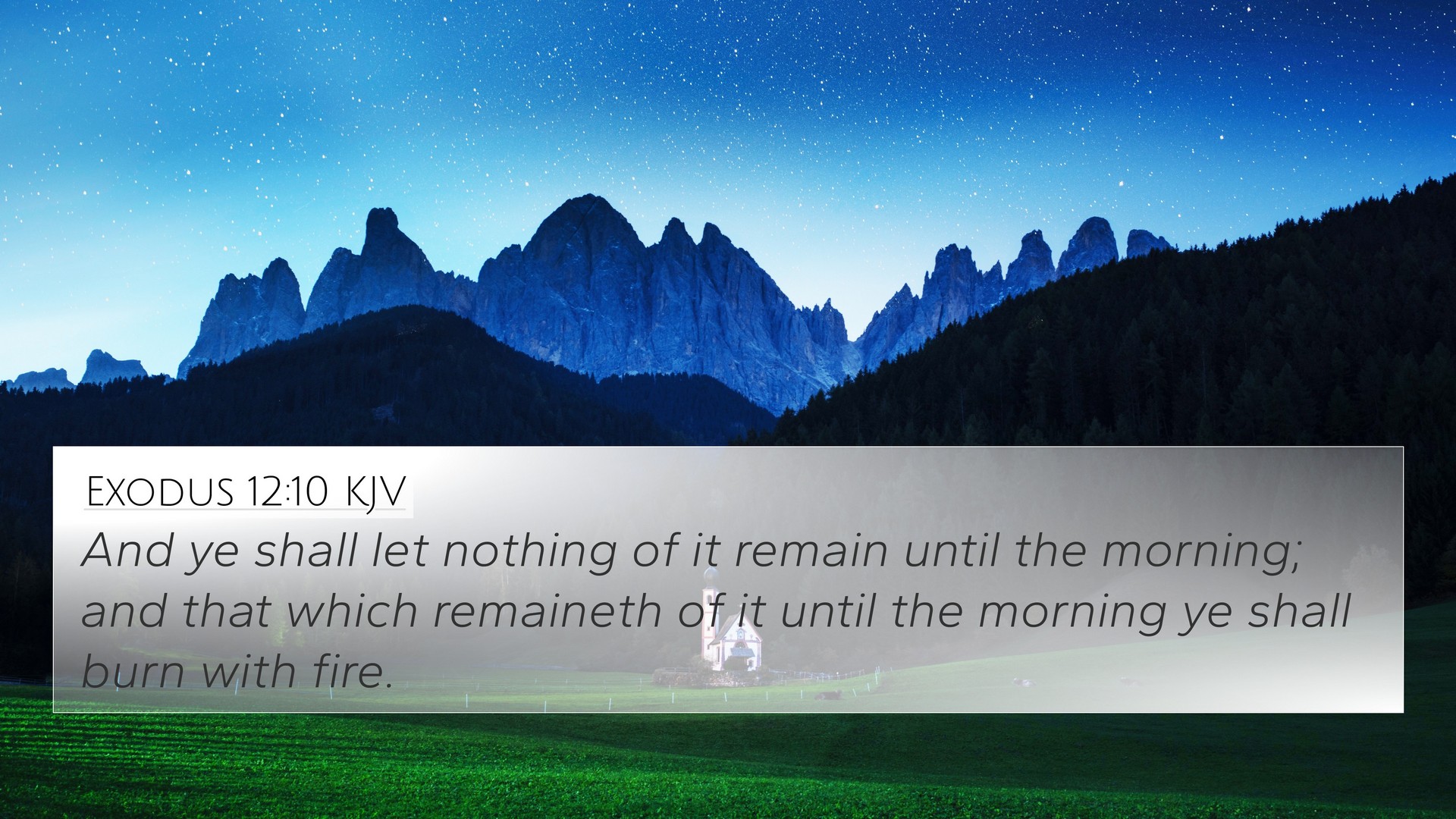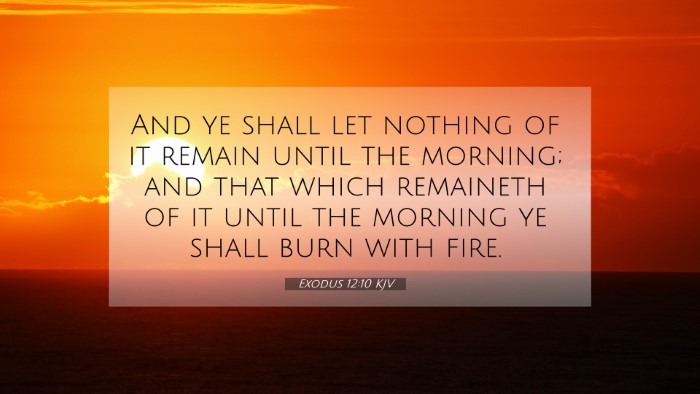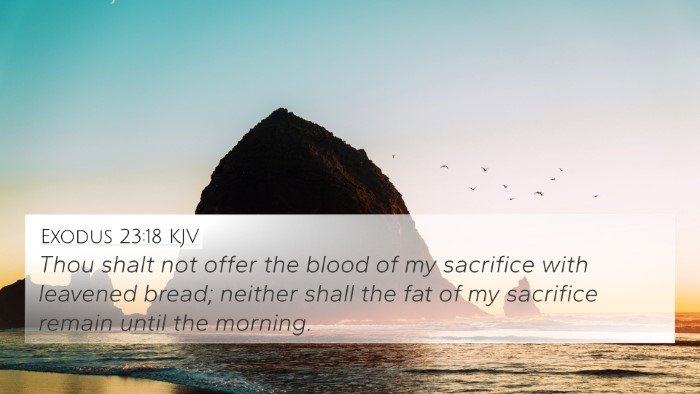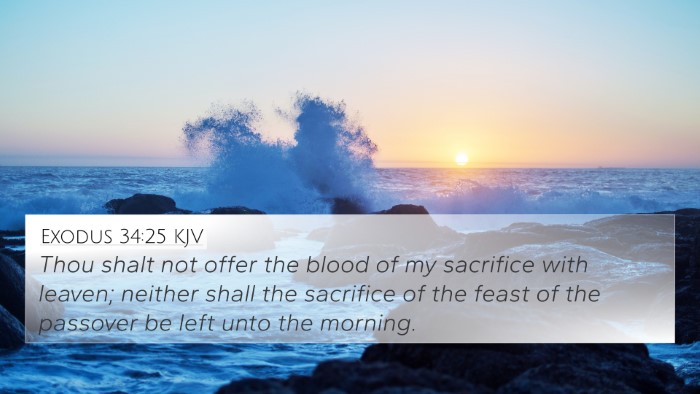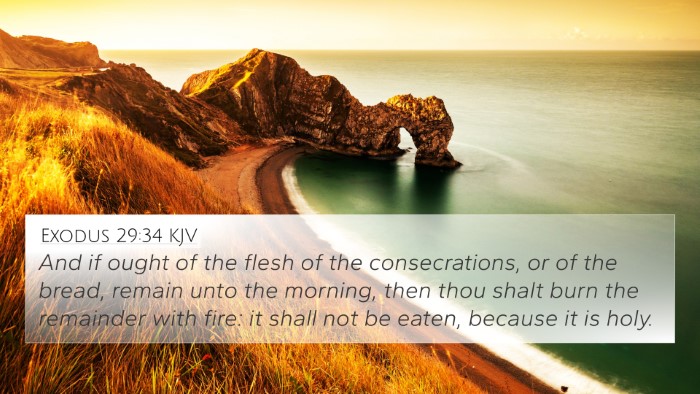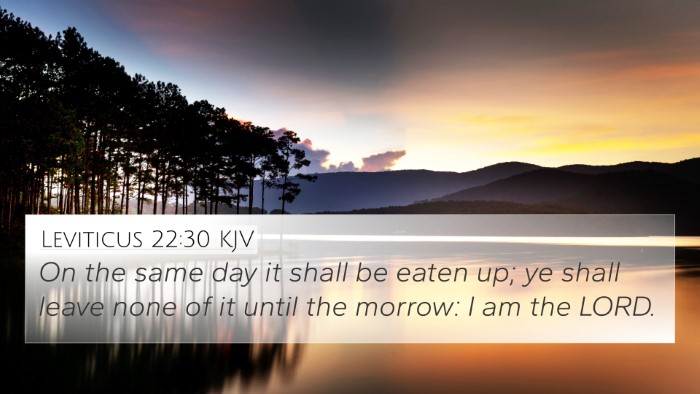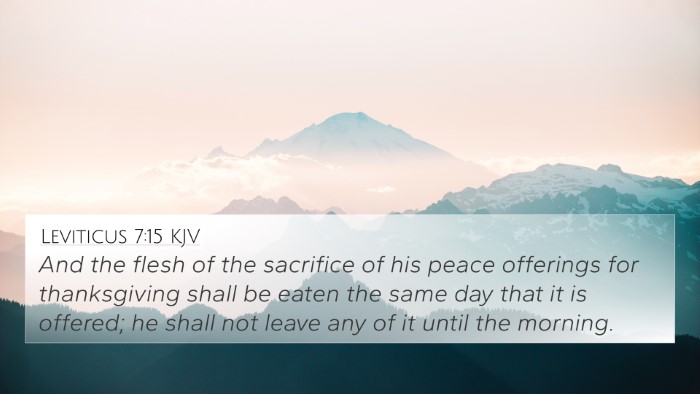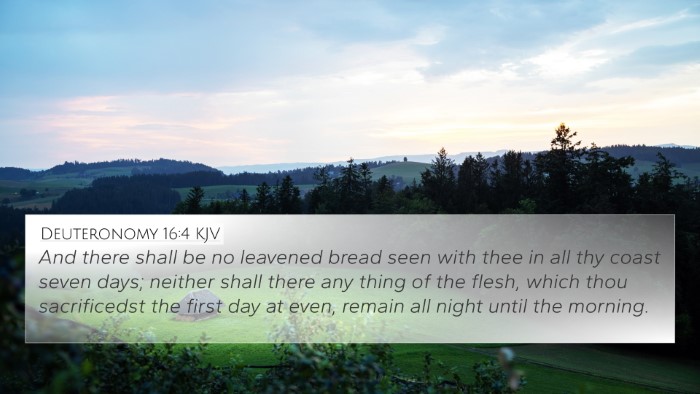Understanding Exodus 12:10
Bible Verse: Exodus 12:10 - "And ye shall let nothing of it remain until the morning; and that which remaineth of it until the morning ye shall burn with fire."
Summary and Meaning
This verse is part of the instructions God gave to Moses regarding the Passover. It emphasizes the importance of obedience and the complete consumption of the Passover lamb symbolizing God's provision and the necessity of purity in worship and community.
Key Insights from Public Domain Commentaries
- Matthew Henry:
Henry highlights that the complete consumption of the lamb represents God’s provision for His people, indicating that believers must fully partake in the blessings provided by God. The act of burning the leftovers signifies the rejection of anything that is unclean or leftover, promoting a sense of urgency and thoroughness in obedience to divine commandments.
- Albert Barnes:
Barnes posits that this command to burn any leftover lamb reinforces the importance of consuming all that God has provided. It symbolizes God's judgment on the Egyptians as well, showing that anything surviving till the next day is considered unholy, and believers must live in a way that does not harbor sin or remnants of the past.
- Adam Clarke:
Clarke notes that the act of burning whatever remains sends a strong message of complete obedience to the Lord. It serves as a reminder that the Passover was not merely a ritual but a profound act of faith that demanded dedication. This command illustrates a broader theme in Scripture: God desires our total commitment and purity.
Thematic Bible Verse Connections
Exodus 12:10 connects thematically to several other Bible verses that highlight obedience, purification, and God’s provision:
- 1 Corinthians 5:7-8: This passage refers to Christ as our Passover lamb, urging believers to celebrate with sincerity and truth, linking the sacrifice of the lamb to the removal of sin.
- John 6:35: Jesus speaks of Himself as the Bread of Life, reinforcing the theme of complete sustenance provided by God.
- Leviticus 7:15-17: Discusses the parts of offerings to be consumed, aligning with the idea of not allowing leftovers in worship practices.
- Hebrews 9:22: Stresses the necessity of blood for atonement, emphasizing the seriousness of sacrifice and its connection to Passover.
- Matthew 26:26-28: The Last Supper, which reflects the Passover, emphasizes total reliance on Christ and His sacrifice.
- Romans 12:1: Encourages believers to present their bodies as living sacrifices, which parallels the complete consumption of sacrificial offerings.
- Revelation 5:12: Proclaims the Lamb's worthiness, tying the concept of the Passover lamb as a foreshadowing of Christ revealed in the New Testament.
Cross-Referencing Biblical Texts
This passage encourages an understanding of cross-references across Scripture. Here are some recommended tools and methods to explore these connections:
- Bible Concordance: Allows you to find themes and connections quickly.
- Bible Cross-Reference Guide: Useful for identifying related verses.
- Cross-Reference Bible Study: A technique to explore how various verses can relate thematically or contextually.
- How to Use Bible Cross-References: Understanding the methodology of linking versus can enhance your study experience.
- Bible Chain References: Help in tracing thematic lines across the Scriptures.
Concluding Thoughts
This command in Exodus serves as a reminder of the seriousness and holiness of God’s covenant, calling believers to consume entirely the provision offered and to remove any remnants of unholiness from their lives. By reflecting on this verse and its connections, believers can gain deeper insight into their relationship with God and His redemptive act through Christ.
As we explore the connections and cross-references within the Scriptures, we find not only thematic parallels but also a cohesive narrative that culminates in the person of Christ.
